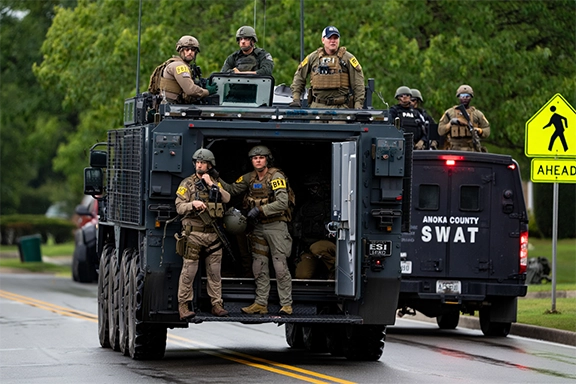Being a victim and being killed by an event are two different things. If you’re killed, you’re done. The rest of your responsibilities, whatever they might be, now belong to someone else—perhaps family, a work partner, or simply to the indifferent silence of history. If you were killed in the Israeli aerial attack on Tehran, what happens next either confirms or deletes your religious beliefs. If you were one of the 241 souls on Air India Flight 171, your story has found its final, tragic punctuation. If you are killed, at any time, by anything, you are done.
If you are a victim, however, you live. And because you live, you are forced to revisit the crime repeatedly—all the pain, all the fear, all the sorrow. Your world is reshaped, your worldview changes, your political views may shift, and the entire trajectory of your life is bent by the gravitational pull of that moment. You are made to wear the mantle of victim.
You live. Perhaps the mantle fades some with age, but in the quiet moments, it’s always there, a scar on your memory marking the instant your life changed. You became a victim.
It was bad enough as a child. That nephew accidentally shot on the front lawn, or the horrible car accident you witnessed. Those were indelible scenes, and your mind worked overtime to prevent those memories from becoming the monsters under your bed.
But as an adult, you learn you are vulnerable in new, more insidious ways. Congress changes how need is determined, and now you don’t get help paying for food. You’re a victim. Your state rejects the Medicare extension, and you lose your health insurance. You’re a victim. Your child’s preschool closes because the government grant that allowed them to pay teachers a living wage no longer exists. You’re a victim.
And now, after all the things that leave you struggling to get through life, we are confronted by a President and an administration that seem to have perfected the art of governance through victimization. Every word they say, every act they commit, seems designed to make you a victim once again. They hope to wear you down. They hope to make you go away. They hope you’ll stop caring. Why? Because you’re a victim, and victims are supposed to be silent.

But fortunately, being a victim is a starting point. It is an anchor in your memory that allows you to proceed, to pick yourself up, and to keep right on going. And you keep going, and you keep going, and then one day someone hands you a picket sign. Someone asks you to march for a cause. And with every step you take, the chains of that victimhood grow lighter. They never completely go away, mind you, but the weight is lessened by the solidarity of shared action.
Over this single weekend, we all became victims. Again.
The people of Minnesota became victims of political murder, their democracy assaulted by a killer who co-opted the language of protest.
Marcos Leao, a U.S. Army veteran, became a victim of the very military he swore an oath to serve, detained on the soil he defended.
Senator Alex Padilla became a victim of the state’s raw power, his constitutional role discarded and his body thrown to the ground.
The peaceful protestors of the “No Kings” movement became victims of a poisoned narrative, their call for democracy now maliciously linked to an assassin’s bullet.
The families of those lost on Flight AI-171 became victims of a news cycle that allowed their profound loss to be buried by the spectacle of war and politics.
The dead are done. The victims, however, live.
So now, what are you willing to do about it?
Impeach. Convict. Remove.
Discover more from Clight Morning Analysis
Subscribe to get the latest posts sent to your email.










